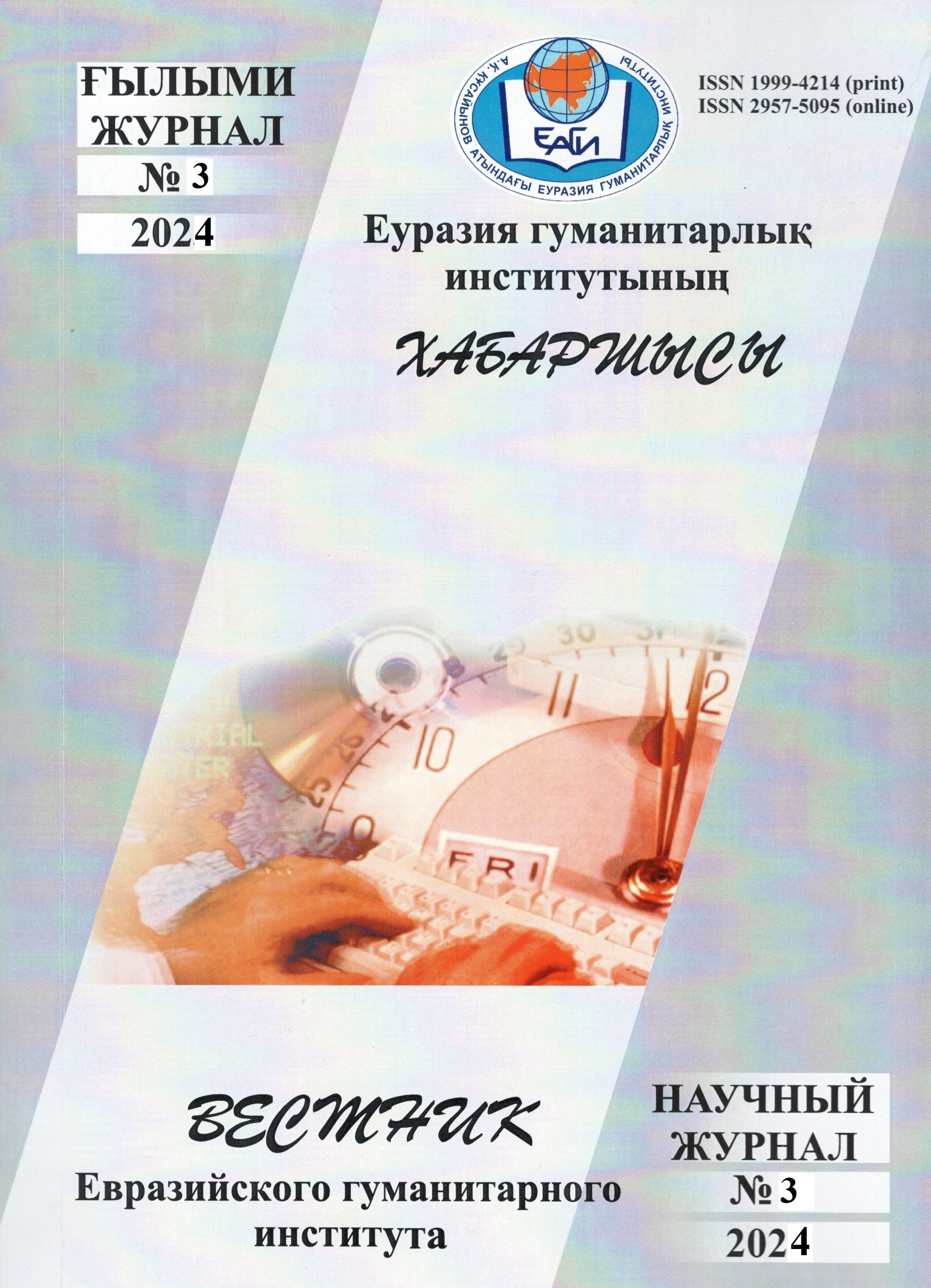LINGUISTIC REPRESENTATION OF THE CONCEPT OF «MENTAL ACTIVITY» IN THE KAZAKH FAIRY-TALE DISCOURSE
Abstract
The article is devoted to the analysis of the linguistic representation of the concept of «mental activity» in the discourse of Kazakh fairy tales. The research is conducted within the framework of new directions in modern linguistics, such as linguoculturology, linguistic stylistics, ethnopsycholinguistics, discourse analysis, and linguoconceptology. The object of the study is the concept of «mental activity» in Kazakh fairy-tale discourse. The subject of the study is the lexical units that actualize this concept. The purpose of the study is to identify the specific features of understanding the meaning of the concept of «mental activity» in Kazakh fairy-tale discourse. The research carries out a lexicographic, discursive, and linguocultural analysis of the concept of «mental activity» to reveal the connection between language and culture within the framework of linguoculturology, explore the concept itself, its structure, and research methods, and determine the structure of the concept of «mental activity.» Explanatory dictionaries of the Kazakh language, a dictionary of synonyms and antonyms, phraseological dictionaries, and Kazakh fairy-tale texts were used as the material for the study. The scientific and methodological foundations of the research are based on scientific conclusions from studies on discourse theory and analysis, speech communication theory, comparative linguistics, functional linguistics and speech genre theory, text linguistics, linguoculturology, and fairy-tale discourse. The novelty of this research lies in offering a comprehensive description of the concept of «mental activity» through lexicographic, discursive, and linguocultural analysis. The theoretical significance of the results is determined by identifying the representation of the worldview in the fairy-tale discourse of the Kazakh people through the concept of «mental activity.» The research materials, findings, and conclusions will serve as a basis for future studies in the fields of cognitive science and linguoculturology. The research is guided by V.A. Maslova’s methodology of conceptual analysis of conceptual structures. The method of comprehensive concept analysis consists of the following stages: 1. Analysis of dictionary definitions, where the meanings of lexemes reflecting the concept are examined using various explanatory dictionaries of the Kazakh language. 2. Analysis of the synonymous and antonymous series of the studied concept. 3. Analysis of phraseological units and proverbs. 4. Discoursive and linguocultural analysis. The concept of «mental activity» is analyzed in the context of Kazakh fantastic fairy-tale discourse.


